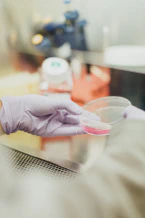Modern Self-Discovery Insights

“Know Thyself”: An Ancient Maxim for Modern Times
The maxim “Know thyself” has been around since ancient times, and it’s still as relevant today as it was back then. It’s an age-old piece of advice that encourages us to understand ourselves better, and it’s something that has always fascinated me.
As someone who has always been interested in understanding the self, I have delved into various fields, from art to neuroscience, and even becoming a psychotherapist. Today, I work as a CEO of a thought-controlled computing company, combining all my passions to help people become more in tune with themselves.
“Know thyself” is an imperative that defines our species, as it is self-awareness that sets us apart from earlier instances of mankind. But, in today’s world, we are often too busy with our gadgets to really stop and reflect on ourselves. We are so caught up in the minute-to-minute conversations, emails, and social media that we lose sight of what really matters - ourselves.
We often feel the need to escape from our daily lives to find ourselves again, thinking that we need to retreat to a secluded place. But, escaping from our everyday lives is not the solution, and we eventually have to come back.
However, the good news is that we don’t need to run away to the mountains to know ourselves. We can redefine our relationship with technology to gain a heightened sense of self-awareness. And this is where thought-controlled computing comes into play.
As someone who has been involved in the development of this technology, I can confidently say that it has the potential to transform the way we understand ourselves. By using a brainwave sensor, we can analyze the electrical activity in our brains and translate it into meaningful data. For instance, we can find out how relaxed or focused we are at any given moment, and use that information to improve our lives.
Through thought-controlled computing, we can learn about our hidden mental states and gain insights into ourselves that were previously hidden from us. This technology has immense potential for self-improvement, especially for those with attention deficit disorders. It can even help us build colorful, layered pictures of our lives, helping us better understand our behavior over time.
In conclusion, “Know thyself” is a maxim that we should all take to heart. And with the advent of thought-controlled computing, we now have a powerful tool to help us on this journey of self-discovery. It’s time to build a seamless relationship between ourselves and technology, and unlock the hidden worlds within us.
The Value of Self-Knowledge
The maxim “Know thyself” has been around for thousands of years, and it’s still relevant today. It’s not clear who said it first, but it doesn’t really matter. “Know thyself” is timeless advice, especially in today’s fast-paced world where we’re constantly bombarded with distractions.
As someone who’s always been fascinated by self-discovery, I’ve studied neuroscience and become a psychotherapist. Now, as the CEO of a thought-controlled computing company, I’m committed to helping people become more in tune with themselves.
Self-awareness is what sets us apart from other species, and yet we often lose sight of ourselves in the midst of all the digital noise. We’re so busy reflecting ourselves out into the world through social media, emails, and text messages that we forget to reflect deeply on our own selves. We clutter ourselves up with all this and then wonder why we can’t find ourselves.
Many of us think we need to escape our everyday lives to get to know ourselves better. We assume that we need to go to secluded retreats or the top of a mountain to find peace of mind. But is that really the only way to achieve self-awareness?
At my company, we’re working on a new way to use technology to help people become more familiar with their inner selves. Thought-controlled computing is a powerful tool that allows us to see what’s going on inside our heads in real-time. By monitoring our brainwaves, we can gain insights into our emotions and mental states that we might not be aware of otherwise.
For instance, with this technology, we can track our levels of relaxation and focus, which are notoriously difficult to gauge subjectively. By seeing the data, we can make better decisions about how to manage our time and energy. We can learn how to improve our focus and productivity, as well as our overall well-being.
Thought-controlled computing also has enormous potential for people with ADHD or other conditions that affect their ability to concentrate. By creating applications that reward focused brain states, we can help these individuals improve their symptoms without medication.
Overall, thought-controlled computing has the power to transform the way we understand ourselves and our relationship with technology. It’s a tool that can help us live more mindful, intentional lives, and I’m excited to see how it will continue to evolve in the coming years.
The Challenges of Gaining Self-Knowledge
Self-knowledge is a valuable tool that has been emphasized by philosophers throughout history. The maxim “know thyself” has been passed down for centuries and remains relevant in modern times. Knowing yourself is about understanding your thoughts, feelings, and behaviors. It is about understanding your values, strengths, weaknesses, and limitations.
By gaining self-knowledge, you become more aware of your actions and reactions, which helps you make better decisions. You learn to identify your patterns and tendencies, and you can work on improving yourself. Self-knowledge can also help you understand your relationships with others, and it can improve your communication skills.
However, gaining self-knowledge is not always easy. It requires introspection, reflection, and self-awareness. It can be uncomfortable to face your flaws and weaknesses, but it is an essential step towards personal growth.
One way to gain self-knowledge is through mindfulness practices such as meditation. Meditation can help you become more aware of your thoughts and feelings, and it can help you develop greater emotional intelligence. Another way is to engage in regular self-reflection. Take time to think about your experiences, and ask yourself why you reacted the way you did. What could you have done differently? What did you learn from the experience?
Ultimately, gaining self-knowledge is an ongoing process. It requires a willingness to learn, grow, and change. It can be challenging, but the rewards are worth it. By knowing yourself, you can improve your relationships, increase your happiness, and live a more fulfilling life.
Self-Knowledge for Better Decision Making
Understanding oneself is the foundation for living a fulfilling life, and the maxim “Know thyself” can be applied in many practical ways. By gaining self-awareness, individuals can identify their strengths and weaknesses and use this knowledge to achieve their goals.
One practical application of “Know thyself” is in career choice. By understanding one’s natural talents, interests, and values, individuals can make informed decisions about their professional lives. This self-knowledge can also guide individuals in choosing the right work environment and colleagues that align with their personal values.
Another practical application of “Know thyself” is in personal relationships. Understanding one’s personality traits, communication style, and emotional needs can lead to healthier and more fulfilling relationships. This self-awareness can also help individuals identify patterns of behavior that may be detrimental to their relationships and work towards making positive changes.
“Know thyself” can also be applied in physical health. Understanding one’s body type, metabolism, and nutritional needs can lead to more effective and sustainable healthy habits. This self-awareness can also help individuals identify and address any physical health issues they may be facing.
In conclusion, “Know thyself” is not just an ancient maxim but a practical tool for achieving personal and professional success. By gaining self-awareness and applying it to various aspects of life, individuals can make informed decisions and live fulfilling lives.
Understanding Patterns and Tendencies
Understanding ourselves is one of the most important and challenging things we can do. The ancient Greek maxim “know thyself” is a timeless reminder that self-knowledge is crucial to personal growth and fulfillment.
It’s easy to get lost in the distractions of the modern world and lose sight of who we truly are. We often define ourselves by our external circumstances such as our job, our relationships, and our possessions. But true self-knowledge comes from looking within and understanding our thoughts, feelings, and values.
Getting to know ourselves can be uncomfortable at times. It requires us to confront our fears, weaknesses, and flaws. But the rewards of self-discovery are invaluable. When we understand ourselves, we can make better choices, grow healthier relationships, and live more authentically.
One way to gain self-knowledge is through introspection. Taking time to reflect on our experiences, emotions, and beliefs can help us identify patterns and gain insights into our behavior. Journaling, meditating, or talking to a trusted friend or therapist are all effective ways to facilitate this process.
Another way to gain self-knowledge is through feedback from others. We may not always see ourselves clearly, but trusted friends and family members can offer valuable perspectives that help us see ourselves in a new light.
In conclusion, the ancient maxim “know thyself” remains relevant today. It serves as a reminder that the key to a fulfilling life lies in understanding ourselves. By taking the time to reflect, seek feedback, and explore our inner selves, we can develop a deeper sense of self-awareness and live more purposeful lives.
Self-Knowledge and Relationships
The ancient Greek maxim “know thyself” may seem outdated in today’s fast-paced and technologically advanced world, but its relevance cannot be overstated. Knowing oneself is essential to living a fulfilling life and achieving personal success.
Self-awareness, or the ability to recognize and understand one’s thoughts, feelings, and behaviors, is a fundamental component of knowing oneself. When we are self-aware, we can make more informed decisions, have healthier relationships, and pursue careers that align with our values and passions.
However, achieving self-awareness is not always easy. We live in a world filled with distractions and external influences that can make it difficult to tune in to our internal experiences. It’s important to take time for introspection and reflection to gain a deeper understanding of ourselves.
Knowing oneself also means accepting oneself, flaws and all. We all have aspects of ourselves that we may not be proud of, but it’s important to acknowledge and accept them in order to grow and improve.
In today’s world, where social media and the pressure to conform to societal norms can be overwhelming, knowing oneself can serve as a powerful antidote. By understanding our own values and beliefs, we can resist the urge to compare ourselves to others and instead live an authentic and fulfilling life.
In conclusion, “know thyself” may be an ancient maxim, but its relevance in today’s world cannot be underestimated. By growing self-awareness and acceptance, we can live a more fulfilling and authentic life, pursue our passions, and achieve personal success.
The Role of Introspection and Reflection
Knowing oneself is a maxim that has been passed down from ancient times, and for good reason. Understanding your own strengths and weaknesses can have a profound impact on your life. It can help you identify your passions and goals, and guide you in making important decisions.
By knowing yourself, you can also build better relationships with others. Understanding your own emotions and how you respond to different situations can help you communicate more effectively with those around you. This, in turn, can lead to more meaningful connections and better collaboration in both personal and professional settings.
In addition, self-awareness can help you manage stress and other negative emotions. By recognizing your own triggers and how they affect you, you can develop strategies to cope with difficult situations in a healthy way.
So how can we grow self-knowledge? It starts with reflection and self-examination. Take time to think about your values, beliefs, and experiences. Consider what brings you joy and fulfillment, as well as what challenges you. Engage in activities that allow you to explore your inner self, such as meditation or journaling.
Remember, knowing oneself is a lifelong journey, and it takes effort and commitment to maintain. But the rewards are worth it – a deeper understanding of oneself can lead to a more fulfilling and purposeful life.
Hugging Self-Awareness for Personal Growth
The ancient maxim “know thyself” may seem outdated in our modern world, but its importance has not diminished. Understanding who we are as individuals is crucial for personal growth and development, as well as for building strong relationships with others.
Knowing ourselves means understanding our strengths and weaknesses, our values and beliefs, and our emotions and motivations. It requires us to take a step back and examine ourselves objectively, free from the influence of external factors. This introspection can help us identify areas in which we can improve and work towards becoming our best selves.
In addition, understanding ourselves can help us navigate the complexities of modern society. We are constantly bombarded with information and stimuli, and it can be easy to lose sight of who we are and what we stand for. By having a solid sense of self, we can make more informed decisions and live a more authentic life.
Furthermore, knowing ourselves can improve our relationships with others. By understanding our own emotions and motivations, we can better empathize with others and build deeper connections. It can also help us recognize when our own biases and prejudices are at play, allowing us to be more open-minded and respectful towards others.
In conclusion, the ancient maxim “know thyself” still holds great relevance in our modern times. By taking the time to understand ourselves, we can grow as individuals, navigate the complexities of modern society, and build stronger relationships with those around us.
Conclusion
In conclusion, the ancient maxim “know thyself” still holds great significance in our modern times. Self-awareness is the foundation for personal growth and development. By understanding our own thoughts, emotions, and behaviors, we can make better decisions, build healthier relationships, and achieve our goals more effectively.
Taking the time to reflect on our own experiences and emotions can be challenging, but it is a crucial step in the journey of self-discovery. We should also be open to feedback from others and be willing to accept and learn from our mistakes. By doing so, we can continue to grow and evolve as individuals.
In our fast-paced and ever-changing world, it’s easy to get caught up in the demands of our daily lives and neglect our own personal growth. However, by prioritizing self-awareness and the practice of “knowing thyself,” we can lead more fulfilling and meaningful lives.
















